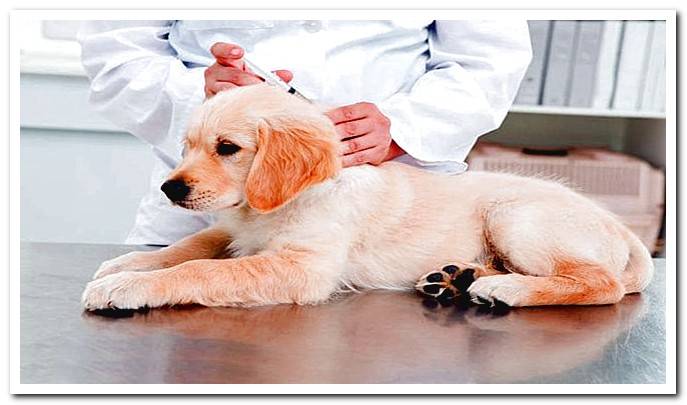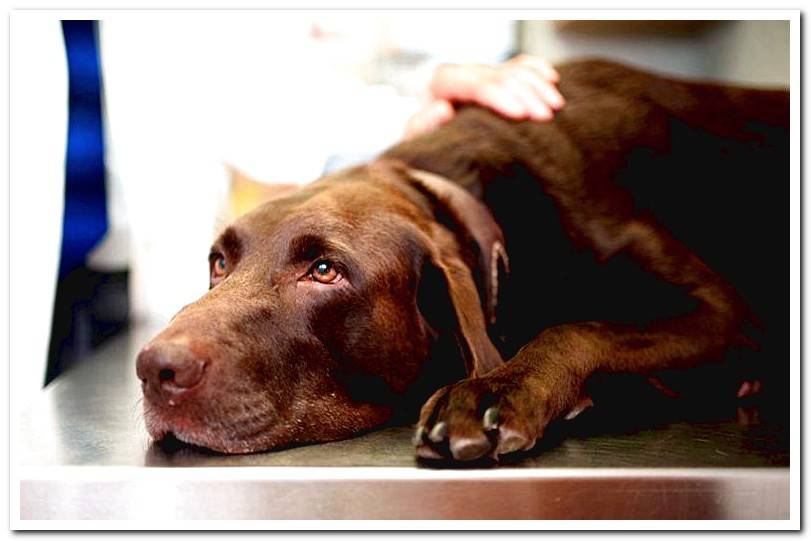
Vaccination protects our furry from many serious diseases, so it is important that they are immunized from puppies.
If you follow the recommended schedule, you will see that the multipurpose vaccine is the first one that should be applied. Do you want to know what it prevents and how often to put it? We explain everything to you in this simple and complete article.
Index of contents
- 1 What is the multipurpose vaccine?
- 2 What does the multipurpose vaccine protect against?
- 3 How often do you have to put it?
- 4 Tips when applying the multipurpose vaccine
What is the multipurpose vaccine?
As its name suggests, a multipurpose vaccine prevents against various diseases. This is possible thanks to the biological preparation it contains.
This combined vaccine has several types of antigens, which are the substances that trigger the formation of antibodies in our dog.
With these specific defenses the dog acquires immunity before a certain disease, without having had to suffer or overcome it before.
The advantage of polyvalent vaccines is that it reduces the number of injections. This translates into less stress for the dog and less chance of side effects.
At a professional level it also helps to save material and time, in addition to facilitating the transportation, storage and preservation of vaccines.
However, the strengthening of the immune system provided by these doses is temporary, so the dog must be revaccinated periodically so that the effect is maintained.

What does the multipurpose vaccine protect against?
The multipurpose canine vaccine is applied in authorized veterinary centers and normally protects against the following viral diseases:
- Distemper. It is highly contagious and affects both your respiratory system and your digestive, skin or nervous system.
- Canine parvovirus. It is the main canine viral disease and affects the intestines. Infectious hepatitis, caused by canine adenovirus type 1. It can be deadly, especially in unvaccinated puppies.
- Canine parainfluenza. It can cause canine infectious tracheobronchitis, the so-called “kennel cough.”
- Other infections caused by canine adenovirus type 2.
Within polyvalent vaccines, several types can be distinguished, depending on the number of diseases they protect against. There are trivalent (valid for 3 types of virus), tetravalent (for 4), pentavalent (for 5), hexavalent (for 6) and octovalent (for 8).
Obviously, those with the highest coverage are the most comprehensive and include both mandatory and optional vaccines.
All the ailments we have mentioned can have fatal consequences for the health of your furry, but with the polyvalent vaccine the risk of contracting these conditions is drastically reduced.
How often do you have to put it?
When born, dogs do not have a sufficiently mature immune system for vaccines to take effect. Therefore, in the first weeks of the dog’s life, breast milk is the best immunizing option.
After this time, the vet will be able to administer the first doses of vaccines. The regulations vary from one country to another, even from one community to another, but as a general rule in Spain, the multipurpose in dogs is usually applied as follows:
- At 6 weeks: Depending on whether weaning has occurred or not, an initial dose may be given.
- At 8 weeks: the multipurpose vaccine is administered.
- In week 12: A reminder of this vaccine is placed.
- Annually: the dog must receive a new booster, so that the effectiveness of the vaccine does not decrease over time.
In addition, there are vaccines that are not part of the polyvalent and are administered separately to increase their effectiveness.
An example of this is the rabies vaccine, which should be given at 16 weeks, or the leishmaniasis vaccine, a very serious disease that is transmitted by the bite of infected mosquitoes.

Tips when applying the multipurpose vaccine
There are several possible vaccination plans, so we recommend that you always consult your vet with any questions you have.
As an animal health expert, he will guide you and inform you of all the vaccinations that your furry needs.
It is that in this matter you must also take into account the breed of the dog, if the dog must travel regularly to other countries, the regulations of each autonomous community and the incidence of different diseases by geographic area.
Finally, it is important that vaccination is accompanied by internal deworming of the puppies, because with the elimination of parasites their defenses will be better and the vaccine will be more effective.
As you can see, vaccination is an aspect that you should not neglect so that your furry remains healthy and protected against many viral diseases. Remember: treatment is always more expensive than prevention, but apart from that, the health of our furry is something that is priceless.
